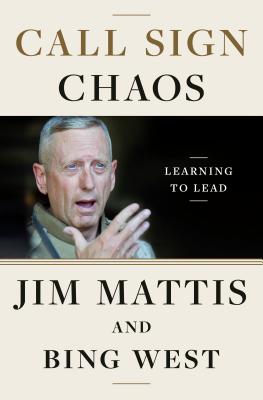What do you think?
Rate this book


320 pages, Hardcover
First published January 1, 2019
Reading is an honor and a gift from a warrior or historian who—a decade or a thousand decades ago—set aside time to write. He distilled a lifetime of campaigning in order to have a “conversation” with you. We have been fighting on this planet for ten thousand years; it would be idiotic and unethical to not take advantage of such accumulated experiences. If you haven’t read hundreds of books, you are functionally illiterate, and you will be incompetent, because your personal experiences alone aren’t broad enough to sustain you. Any commander who claims he is “too busy to read” is going to fill body bags with his troops as he learns the hard way. The consequences of incompetence in the battle are final. History teaches that we face nothing new under the sun…Reading sheds light on the dark path ahead. By traveling into the past, I enhance my grasp of the present. (42)The italicized sentences from this passage is emphasis I added. Mattis’s statement about reading is applicable to anyone’s life, not just those serving in the military or government. I know I sometimes give people the impression that I’m a Ms. Smartypants because I can speak on a lot of topics; I say to them, look, I’m not a damn genius—I just read a lot. It’s important to put current events in perspective by reading a lot of history. That can often be comforting, especially now with political chaos, a decaying democracy and a pandemic. Read about the Middle Ages and the plague, and I guarantee you’ll feel better about living in the 21st century, even with all its troubles and megalomaniac presidents.
I believe then and I believe today that NATO is absolutely necessary for geopolitical and cultural solidarity among Western democracies. Friends who share enduring historical values are needed as much today as when we stood united against fascism and communism. Those values are foundational to our Declaration of Independence and our Constitution. If we didn’t have NATO today, we would have to create it in order to hold onto our Founding Fathers’ vision of freedom and rights for all. We must remember we are engaged in an experiment called democracy, and experiments can fail in a world still largely hostile to freedom. The idea of American democracy, as inspiring as it is, cannot stand without the support of like-minded nations…For those who question the post-Soviet Union value of NATO, it was telling that that an alliance designed originally for the defense of Western Europe fought its first combat campaign in response to the 9/11 attacks on America. It must not be forgotten, in our too often transactional view of allies, that these nations offered up the blood of their sons and daughters in our common defense. As Churchill said, “There is only one thing worse than fighting with allies, and that is fighting without them!” (177)On page 210, Mattis discusses the problem of political leaders scapegoating their intelligence community, diplomats and predecessors: “It’s frustrating to listen to any leader blame his predecessor, especially a political leader regarding a situation that he knew existed when he ran for office. A wise leader must deal with reality and state what he intends, and what level of commitment he is willing to invest in achieving that end…wise leadership requires collaboration; otherwise it will lead to failure.” Mattis devotes exactly two paragraphs to the 712 days he served as Secretary of Defense for Trump; Trump’s name is never mentioned but it is almost certain that Mattis had his previous employer in mind when he (and Bing West) wrote: “A polemicist’s role is not sufficient for a leader” (244).